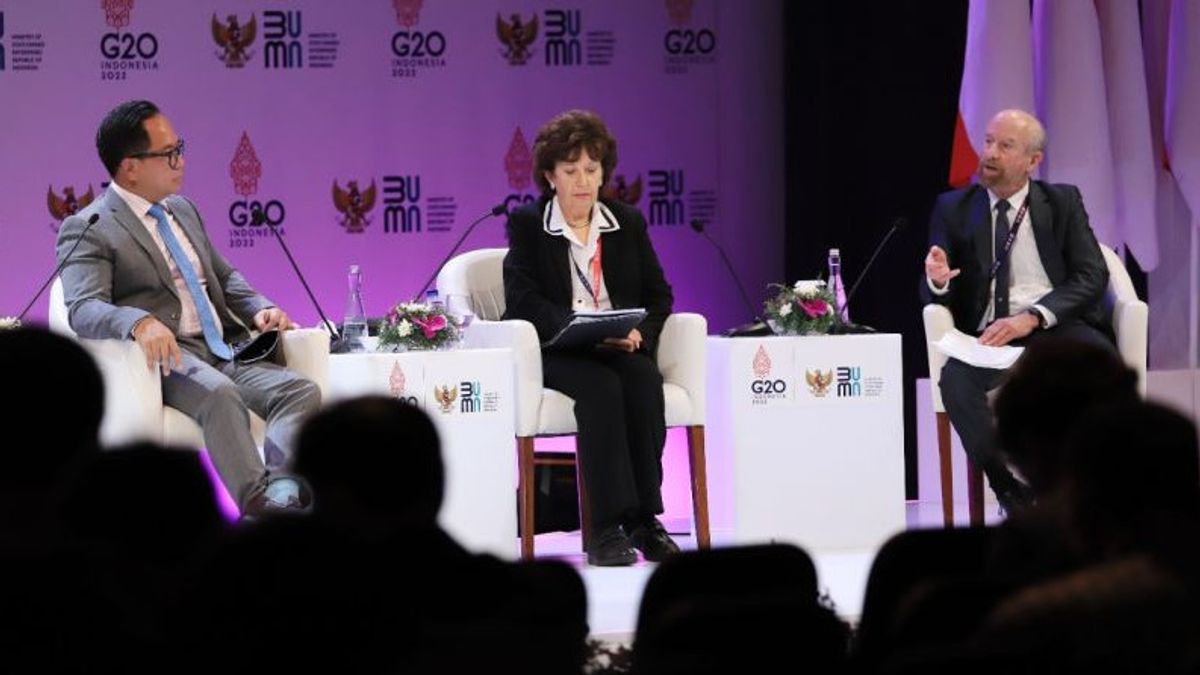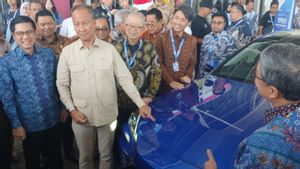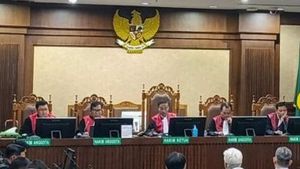JAKARTA - Adjunct Lecturer Harvard Kenedy School Professor Jay K. Rosengard appreciated the contribution of PT Bank Rakyat Indonesia (Persero) Tbk or BRI in encouraging financial inclusion and implementing Environmental, Social, and Governance (ESG) in Indonesia.
According to him, the company's contribution did not just come suddenly, however, it was the fruit of long efforts so far in empowering Micro, Small and Medium Enterprises (MSMEs) as the main backbone of the business.
When agriculture technology began to penetrate two decades ago, he explained, BRI and the government began to play an active role in financing the purchase of rice, fertilizers, pesticides, and allowances living expenses during the transition and education period through the BIMAS (Masal Bimbangan) program.
"This is the beginning or forerunner of a national microbanking at BRI. And what has happened from time to time is that farmers adopt new technology and form a green revolution perspective. This is an extraordinary success, Indonesia has changed from the world's largest rice importer to a clean rice exporter in about a generation., 20 years Jay said as quoted by Antara, Tuesday, October 18.
In addition, according to him, so far the financing disbursed by BRI has been the main driver of the productivity of MSME actors in Indonesia.
The adoption of this technology greatly increases the productivity of farmers, which of course increases their income and living standards. But all of these things are impossible if there is no financing from BRI to increase their productivity," Jay said.
Two decades since the beginning of that effort, the company has grown to become the bank with the largest assets and main distributors of MSME credit in Indonesia with a proportion of 83 percent of total credit, or equivalent to IDR 920 trillion per quarter II-2022.
"BRI is an example of the success of a green resolution. I can also say BRI as a world's largest & most successful profitable microbanking. It's a great unstable story," Jay said.
Furthermore, Jay assessed that BRI has successfully run its business as a commercial bank that has proven to be able to record a profit of IDR 24.88 trillion in the first semester of 2022, with some of which being contributed to the government through dividends and taxes.
On the same occasion, Deputy Minister of BUMN II Kartika Wirjoatmodjo said that there was still great potential in Indonesia, out of around 55 million ultra micro actors, about 30 million had not been touched by formal financial institutions.
"They have an account or have another financing model, but cannot access formal financial institutions. So we can categorize ultra micro customers into the category of unbankable and unfeasible, there are also feasible but unbankable because they do not have collateral, and customers who have gone up in class." said Tiko.
With that, the government has integrated three entities, namely BRI, Pegadaian and PNM in Ultra Micro (UMi) holding which presents SENNYUM co-location where people can get various financing services and products in one office.
The English, Chinese, Japanese, Arabic, and French versions are automatically generated by the AI. So there may still be inaccuracies in translating, please always see Indonesian as our main language. (system supported by DigitalSiber.id)













